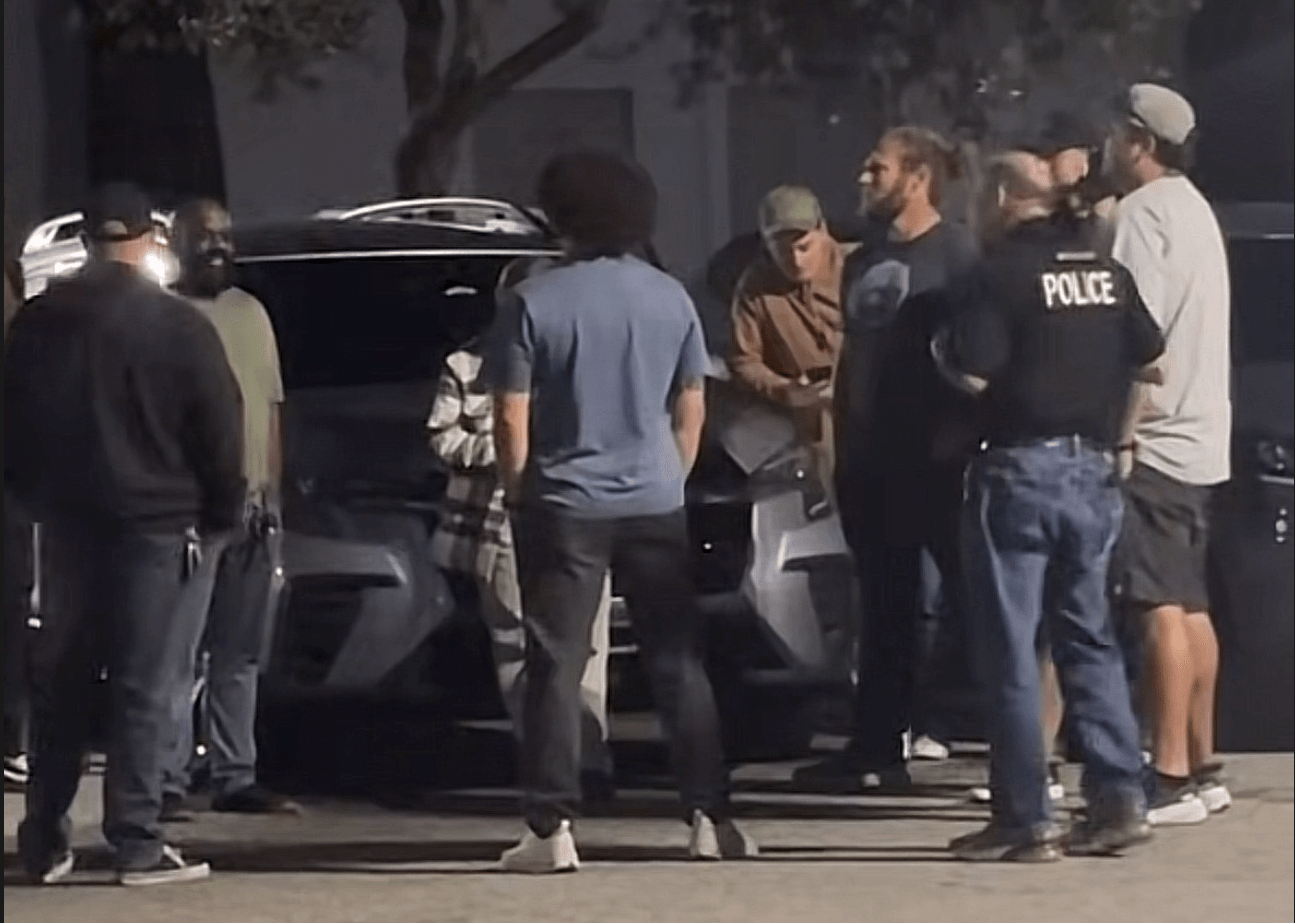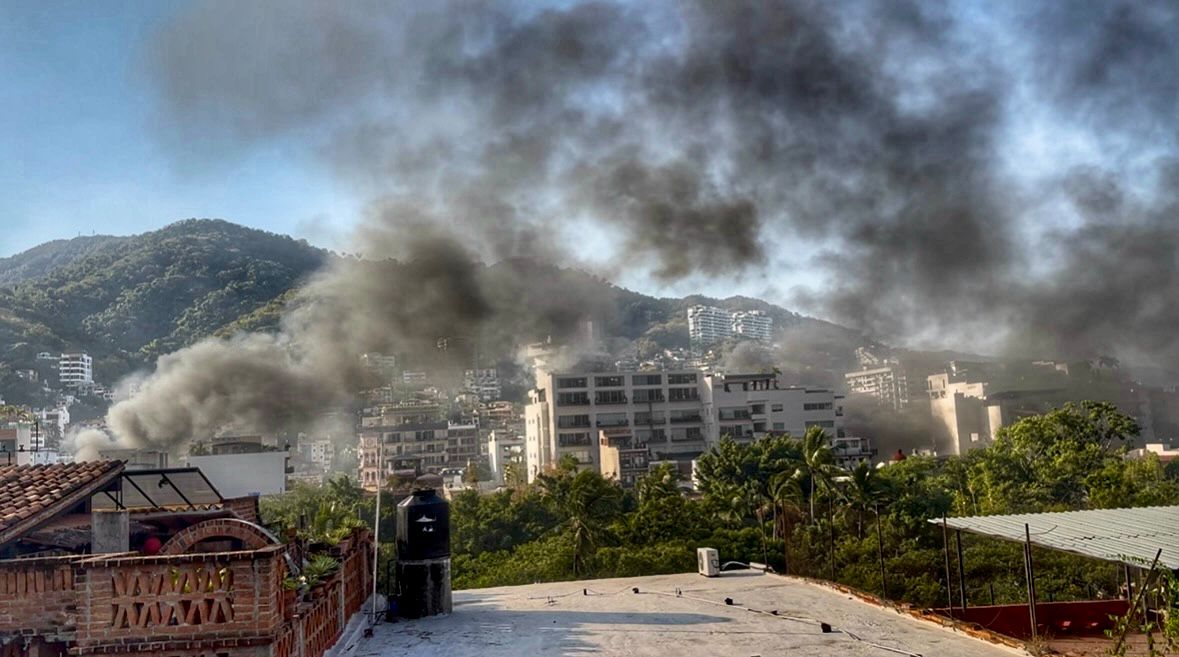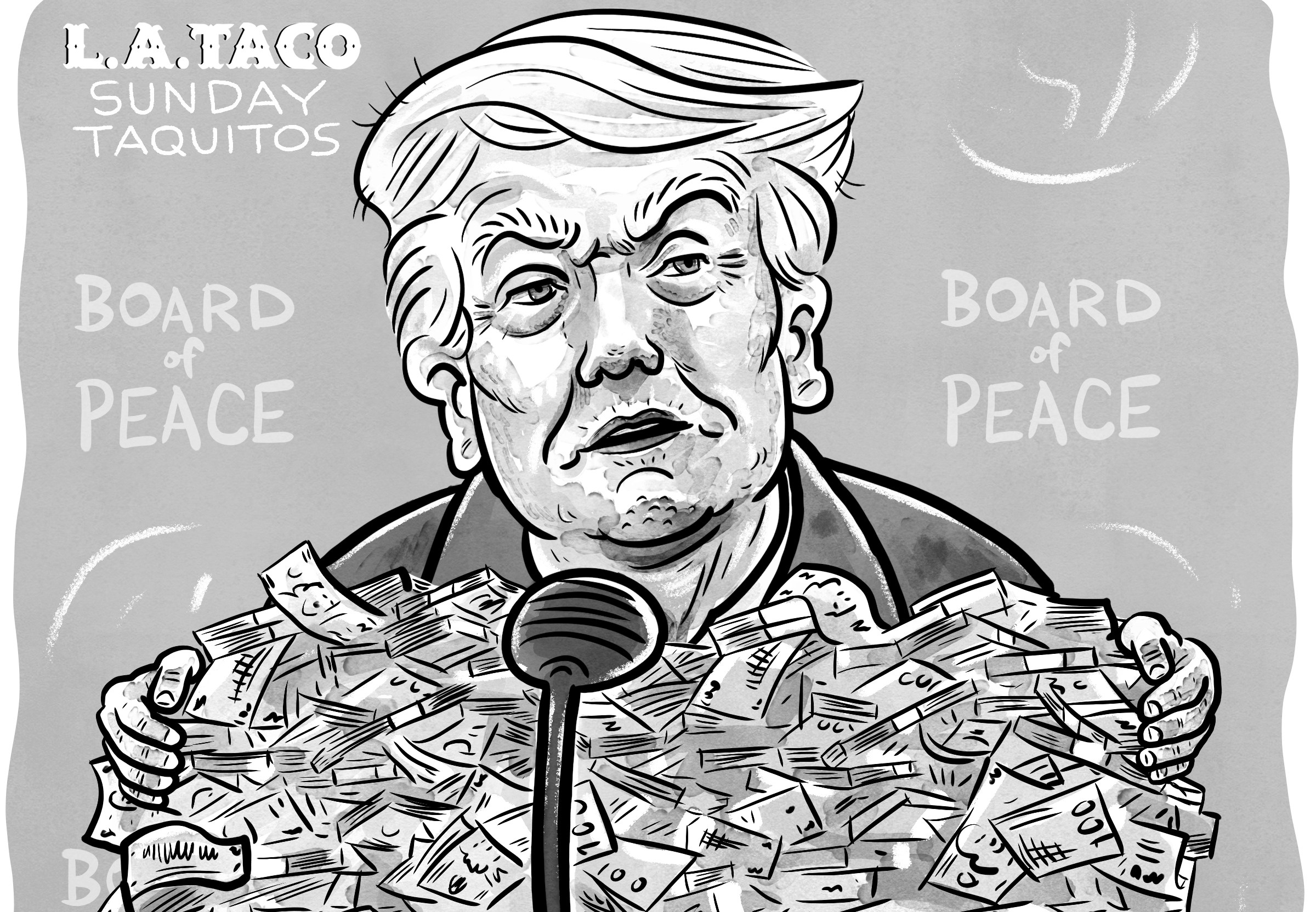When someone tells you who they are, believe them the first time. If you ignore the warning, don’t act surprised when they live up to it. That’s not betrayal—it’s your failure for not listening.
Donald Trump, Stephen Miller, and the entire MAGA machine have made their worldview unmistakably clear. They see Los Angeles—not as a city—but as enemy Brown territory.
Trump speaks of “liberating” L.A. from a so-called “migrant invasion.” Kristi Noem calls us a “city of criminals.” Stephen Miller brands undocumented immigrants as “invaders” and anyone who protests as an “insurrectionist.” This isn’t random rhetoric- It’s designed with the specific intent to prepare the public for a future in which dissent is treated as terrorism.
The goal of this administration is simple: shift the way citizens see protest. Not as a right. Not as protected speech. But as a threat. And from there, the crackdown begins. With federal courts stacked in their favor and entire federal agencies repurposed as partisan weapons, the Trump movement doesn’t need to rely on truth or democracy—they rely on fear, weaponized litigation, and force.
Today, agencies like ICE, Homeland Security, and Border Patrol are used, not as neutral law enforcement bodies, but as political enforcers. They are armed with a frightening array of federal charges, now used to criminalize protest: conspiracy to impede federal officers, obstruction of justice, destruction of federal property, and possession of destructive devices to name a few.
These charges—once intended for serious national threats—are now being weaponized against protesters who organize online, document abuses in the streets, or simply ask hard questions of those in power.
While there are isolated incidents of vandalism, property damage, or the targeting of law enforcement, these are the exceptions—not the essence—of today’s protest movements. Yet such outliers are routinely exploited to justify excessive crackdowns and escalate confrontations that silence lawful dissent.
What we tend to see, then — is not a genuine concern for public safety or the pursuit of justice, but rather the exercise of power and intimidation. Governments—both at home and abroad—have a long history of infiltrating protest movements, invoking vague conspiracy laws, and stretching legal boundaries. They don’t need to prosecute everyone. They just need to scare enough people into silence.
Although public protest—such as marching in the streets—is an important tool of civic engagement, it's not the one that governments fear the most. It is prepared for them. It even permits them. What the system truly fears is civic discipline—an organized, relentless public that understands how to wield the tools of democracy. The real threat to power isn’t a crowd in the street, but a movement in the halls of government—flooding public meetings, exercising the right to comment, launching recalls, demanding public records, registering voters, and insisting on transparency.
Some government entities resist scrutiny because they thrive on anonymity and unaccountability. Some officials behave as if they personally own the institutions they serve, treating public offices like private fiefdoms. And no, it’s not just Trump. This culture of entitlement exists at every level of government.
But here’s the good news: institutions—especially our local ones—can be reshaped, and quickly. When citizens organize locally, they can set an example. They create models that ripple outward, pressuring neighboring cities, counties, and eventually, the federal government. And that’s the one thing power can’t tolerate: a public willing to hold it accountable.
In Los Angeles, the Police Commission serves as the civilian oversight body of the LAPD. It is composed of five members, nominated by the mayor and confirmed by the City Council. The Commission holds weekly public meetings, typically attended by the Chief of Police. During these sessions, members of the public are each given three minutes to offer comments—an opportunity that can be incredibly powerful when used to pose sharp, informed questions.
Recent protests, draconian ICE operations, and increased federal activity have raised serious concerns across the city. Angelenos continue to witness roaming caravans of armed individuals in military-style camouflage, wearing masks, heavily armed, and most often refusing to identify themselves. Time and again, city residents are witnessing arrests and detentions marked by excessive aggression and violence. When individuals are whisked away, their family members are often left with no information about their whereabouts. These chaotic conditions are causing deep distress in many of our communities, creating widespread confusion, intimidation, and fear.
Under these conditions, where should citizens turn for answers? If someone contacts the LAPD for help regarding unidentified, masked men with weapons patrolling neighborhoods, what is the LAPD’s obligation? If these individuals offer no identification, how is a resident supposed to know whether they are legitimate federal agents? This fear is very real, as the recent assassination of a Minnesota state official has shown.
These are not abstract hypotheticals—they are urgent, public safety concerns. And the place to demand clarity is the Los Angeles Police Commission. It is the venue where LAPD policy can be challenged, debated, and changed—and where answers, once delivered, can ripple outward to other cities, counties, and states.
We are not powerless – we, in fact, have a number of tools in our collective wheelhouse. Our anger is justified, but anger without focus is a gift to the institutions that want us exhausted. What happened at Dodger Stadium should be our lesson. Protesters disrupted, organized—and got results. The Dodgers, a multi-billion-dollar franchise, responded with a $1 million donation. Was it enough? No. It should’ve been $100 million. But it proved one thing: when protest is targeted and strategic, it works.
The reality is that the risks right now are high. Intervening in the arrest or detention of a loved one—however tragic or emotional the moment—carries serious legal consequences. In these tense encounters with federal agents, your options are limited, and one wrong move can escalate quickly.
That said, you can continue to record video or take photos with a time stamp- that includes date, time of day and location, and share that information on social media or with the press.
You can also join an organization—either in person or online—and become part of the broader community of resistance. Key organizations include the Immigrant Legal Resource Center, the Immigrant Defense Project, the American Civil Liberties Union, and the National Immigration Law Center.
This is only a partial list of a vast network of advocates and community services working to support our communities. We all need to stay informed, get involved, and stand together.
The raids, arrests, and protests will likely continue through at least January 2027—the month a new Congress is sworn in. And even if Democrats regain control, there’s no guarantee they’ll wield power as effectively as Republicans have. History tells us they often don’t.
That’s why real change starts locally. In Los Angeles, we've already shown what’s possible. Through sustained protest, we forced the Dodgers to move—not all the way, but far enough to prove that pressure works.
If we want to change the behavior of law enforcement—local or federal—we have a direct tool: the Los Angeles Police Commission. It's a space where policy can be questioned, exposed, and reformed. Every Angeleno gets their three minutes—use them. This time is precious, and it is powerful.
It literally is up to you as an individual to sign up, prepare to speak and make your voice heard. Once you do this, get others to do the same and repeat your actions ad nauseum until change occurs. Yes, it’s that simple.
Be trucha with your three minutes. Prepare. Speak clearly. Ask sharp, targeted questions. The world might be watching—and your words might be the spark that forces change. At this particular time in history, the only judge of you is your moral conscious. You know if you have used your voice to protect the ones you love. If you don’t use your voice, will you regret it in the future. That’s only a decision you can make for yourself.






